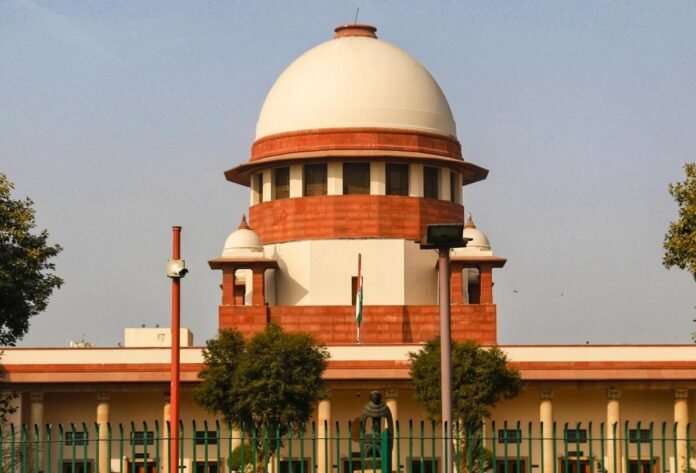Supreme Court to decide if assigning leasehold rights amounts to land transfer or taxable GST supply.
Court To Clarify Key Question On Leasehold Transfers
In a matter with far-reaching implications for real estate and taxation, the Supreme Court of India has agreed to examine whether the assignment of leasehold rights constitutes a “transfer of land” — which is exempt from Goods and Services Tax (GST) — or if it amounts to a “supply of service” under the GST framework.
The Bench of Justice Pankaj Mithal and Justice Prasanna B. Varale was hearing a petition filed by the Union of India challenging a 2023 judgment of the Gujarat High Court, which had ruled that the assignment of leasehold rights in land does not attract GST. The case is expected to settle a long-standing ambiguity surrounding the tax treatment of long-term leases and assignments of immovable property.
Background of the Dispute
The controversy stems from a series of transactions in which industrial entities and developers acquired or assigned leasehold rights over government land for commercial purposes. The Revenue Department contended that the assignment or transfer of such leasehold rights constitutes a supply of service as per Section 7(1)(a) of the Central Goods and Services Tax Act, 2017, making it liable to GST.
However, the Gujarat High Court, in its judgment in Shree Dipesh Anilkumar Naik v. Union of India, held that the transfer of leasehold rights for a consideration essentially represents a transfer of interest in land, which is outside the scope of GST since “land” is excluded from the definition of “goods” and “services” under the Act.
The High Court further observed that a lease or assignment of land rights is akin to a transaction involving immovable property, which falls within the domain of stamp duty and registration laws, not indirect taxation.
Challenging this interpretation, the Centre approached the Supreme Court, arguing that leasehold rights for a specific term do not amount to a transfer of ownership, and hence should be taxed as a service.
Arguments Before the Supreme Court
During preliminary hearing, Solicitor General Tushar Mehta, representing the Centre, argued that the transfer of leasehold rights involves grant of permission to use land for a defined period, which constitutes commercial exploitation of property and hence falls within the ambit of supply under GST.
He submitted that such transactions generate economic value similar to renting or licensing arrangements, both of which are taxable services.
On the other hand, the respondents’ counsel maintained that the assignment of leasehold interest transfers a bundle of rights — including possession and enjoyment — akin to ownership, and thus qualifies as transfer of land rather than a service. They also emphasized that GST law expressly exempts transactions in land and building from taxation under Schedule III of the CGST Act.
The Bench, acknowledging the conflicting interpretations, observed that the issue involves significant fiscal and legal consequences, and hence warrants a detailed examination.
“The distinction between a lease as a transfer of interest and as a taxable service must be examined in the context of constitutional allocation of taxing powers,” Justice Mithal remarked.
Broader Legal and Economic Impact
Experts suggest that the outcome of this case could affect state development authorities, industrial corporations, and private developers, many of whom regularly engage in assignment or transfer of leasehold rights.
If the Supreme Court upholds the Centre’s view, such transactions could attract 18% GST, substantially increasing costs for businesses and real estate projects. Conversely, if the Gujarat High Court’s reasoning is affirmed, it could provide major relief to industries and housing projects across India.
Tax law analysts note that the issue lies at the intersection of property law and indirect taxation, involving the constitutional demarcation between State and Union taxing powers. Article 246A of the Constitution vests GST powers in both the Centre and the States, but “land” remains a state subject, complicating the interpretation.
According to Chartered Accountant Neha Khurana, “The Court’s eventual ruling will serve as a benchmark for distinguishing land transfers from service-based leases, shaping compliance obligations for years to come.”
What Lies Ahead
The matter is now slated for detailed hearing later this year. The Supreme Court’s verdict is expected to harmonize the divergent views across High Courts and bring clarity to the taxability of real estate and leasehold transactions under the GST regime.
The decision will also test the judiciary’s evolving stance on what constitutes ‘supply’ in GST law, a question that continues to shape India’s indirect tax jurisprudence.
🔗 Stay updated on this case and similar tax law developments at our National News Section.
Explore more legal analyses in our Views Section.
🎥 Watch expert breakdowns on our YouTube Channel.




